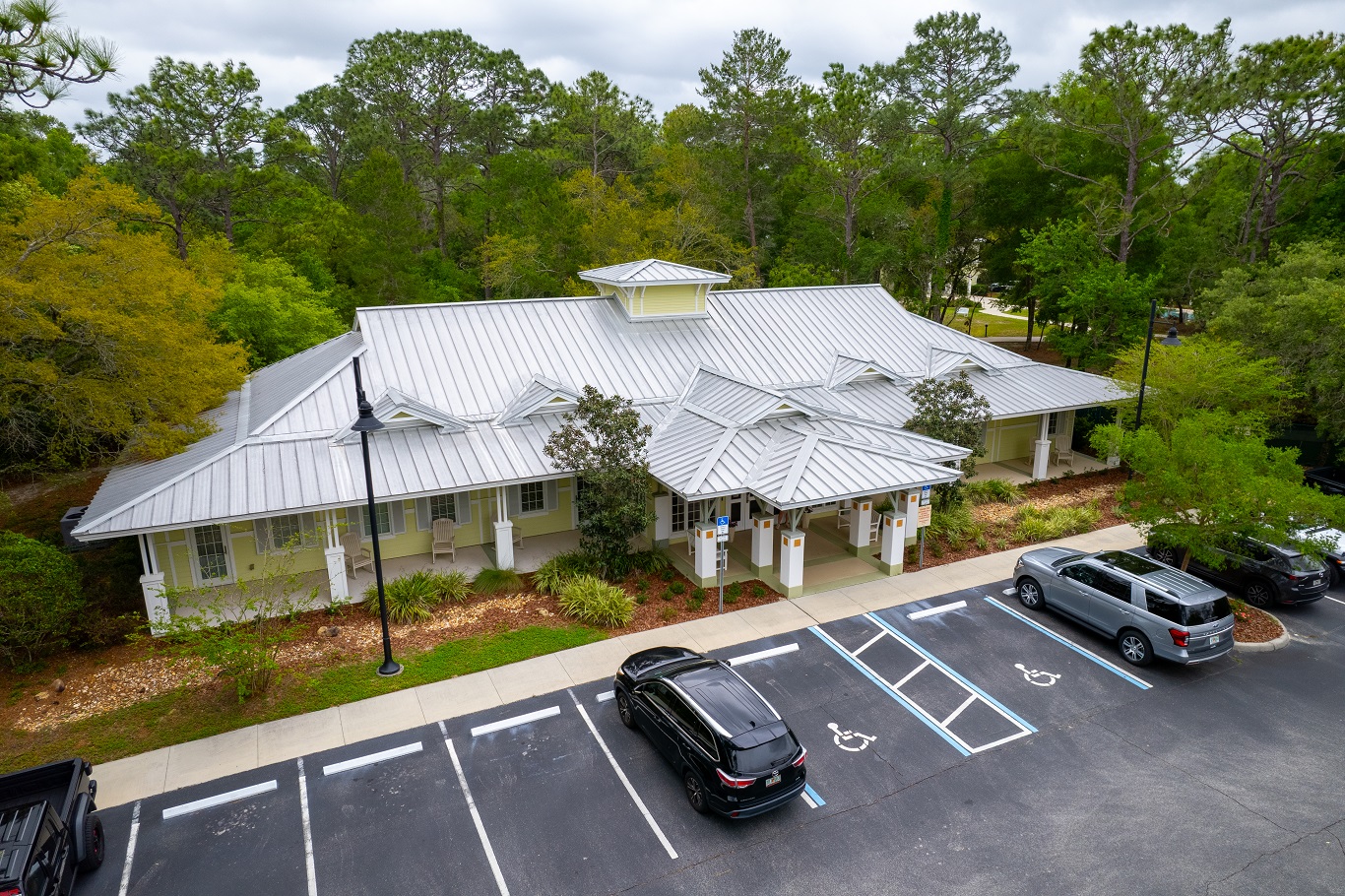At Sabal Palms Recovery Center, we believe that each person can enhance their wellness and live a fulfilling life. We provide transformative addiction and co-occurring mental health treatment that honors each person’s unique strengths and life story. While suffering from a mental health disorder in addition to an addiction can make the healing process seem more complex, the good news is that they are both treatable conditions. When you receive comprehensive, personalized care that’s right for you, you can learn to manage the symptoms of addictions and co-occurring mental health disorders and achieve an improved quality of life.
What Are Mental Health Disorders?
Mental health disorders include a variety of conditions that can influence the way a person thinks, acts, and feels. Mental health disorder symptoms may impair someone’s ability to care for themselves and make safe and healthy decisions, as well as cope with stressful situations.
Although mental health disorders can vary in severity, they often significantly impact a person’s ability to function in day-to-day life. They can cause harm and disruption in many different areas, including at work or school, at home, and in social situations. Additionally, mental health disorders can cause deep emotional distress for those who are suffering from them.
Signs of Mental Health Disorders
The signs of mental health disorders can vary depending on which type of mental illness a person is struggling with. However, it can be helpful to understand and recognize the common warning signs of a mental health disorder. Spotting the signs can help you seek early and effective care — or provide support and guidance for a loved one who may need help.
The possible signs of mental health disorders include:
- Dramatic changes in mood or energy level
- Sleep disturbances
- Noticeable changes in appetite or weight
- Risky or reckless behavior or aggression
- Withdrawing from family and friends
- Poor self-care or grooming
- Showing little interest in activities that were once important
- Inflated or diminished self-esteem or self-confidence
- Failing to meet responsibilities at work, home, or school
- Frequently talking about death or dying
Symptoms of Mental Health Disorders
When someone has a mental health disorder, they often struggle with symptoms that are persistent and disruptive to their life. These symptoms are more severe than the occasional mood swing or difficult emotion many people experience day to day. If mental health disorder symptoms are harming your ability to thrive and live the life you want, it’s important to seek qualified help.
Common symptoms of mental health disorders include:
- Intense anger or sadness
- Overwhelming anxiety, worry, or fear
- Strong feelings of guilt
- Lack of energy
- Struggling to make sense of reality
- Problems concentrating or processing information
- Feeling detached from your thoughts, feelings, or body
- Physical health concerns like headaches and digestive problems
- Suicidal thoughts
If you are showing signs or experiencing symptoms of a mental health disorder, don’t lose hope. Effective care, delivered compassionately and with respect for your unique needs, can help you make meaningful progress toward a more fulfilling life.
Mental Health Disorder Statistics
The National Alliance on Mental Illness (NAMI) reports that 1 in 5 U.S. adults suffer from a mental health disorder each year, and 1 in 20 U.S. adults struggle with a serious mental illness each year. Additionally, according to NAMI, half of all lifetime mental illnesses develop by age 14 and 75% occur by age 24.
The National Institute of Mental Health (NIMH) also shares several mental health disorder statistics from a national survey conducted in 2021. The survey measured the percentage of people in the U.S. who had a mental illness in the past year and found that:
- An estimated 57.8 million adults in the United States, or 22.8%, struggled with a mental health disorder.
- The prevalence of mental health disorders differed for different age groups. Among young adults ages 18-25, the prevalence of mental health disorders was 33.7%, while for adults ages 26-49, it was 28.1%. Among adults age 50 and older, the prevalence of any mental illness was 15%.
- Mental health disorder prevalence also varied by race. Prevalence was highest among adults who reported two or more races, at 34.9%, followed by American Indian/Alaskan Native adults, who reported a prevalence rate of 26.6%.
Additionally, mental health disorder statistics from the World Health Organization (WHO) help show how common these types of conditions are worldwide. According to WHO, in 2019, 1 in every 8 people had a mental health disorder. This number represents about 970 million people globally.
Mental Health Disorder Causes & Risk Factors
The causes of mental health disorders can be very diverse and complex, and multiple factors can make someone more vulnerable to developing a mental health concern.
The following are some of the commonly recognized causes of mental health disorders:
- Genetics and family history: Having a close relative who suffers from a mental health disorder can put you at higher risk for developing a mental health disorder as well.
- Biological factors: Differences in brain structure and function may play a role in mental illness. For example, experts believe that differences in the levels of certain neurotransmitters in the brain may contribute to various mental health disorders.
- Trauma: Traumatic experiences, including childhood abuse or neglect, sexual assault, and military combat, may make someone more likely to develop a mental health disorder.
- Socioeconomic factors: Factors like poverty, housing instability, and unemployment can negatively affect mental health and increase your chances of struggling with a mental health concern.
- Other environmental and physical risk factors: These may include having a chronic physical health condition, struggling with social isolation, experiencing a stressful life event, or suffering from a traumatic brain injury.
Effects of Mental Health Disorders
Mental health is a crucial part of each person’s daily life, affecting how they think, feel, communicate, and interact with others. Therefore, when a person needs but does not receive mental healthcare, they can increase their risk for experiencing many negative effects.
Untreated mental health concerns can undermine your physical, emotional, financial, and social well-being. In general, the harmful effects of mental health disorders can include:
- Strained relationships
- Poor academic achievement
- Difficulty holding a job
- Substance abuse
- Social isolation
- Homelessness
- Legal problems
- Low self-esteem
- Poor physical health
- Self-harm
- Suicidal thoughts or actions
- Onset or worsening of co-occurring mental health disorders
However, when you get personalized mental health support in a safe and encouraging setting like our campus at Sabal Palms Recovery Center, you can begin to heal from any effects of mental illness you’ve already experienced.
Untreated Mental Health Concerns
Navigating the challenges of a mental health concern on your own can be incredibly difficult. However, when you find the right tools and professional support, it’s possible to manage your symptoms and experience long-term healing.
In general, the earlier you receive care for a mental health concern, the better your long-term outcomes are likely to be. With effective care and daily self-help strategies in place, people who are struggling with the effects of mental health disorders can live happier and more productive lives.
At Sabal Palms Recovery Center, we believe that growth and personal transformation are within reach for each person who has been living with a mental health concern. When you receive care at our unique and restorative campus, we will strive to help you rediscover hope and reimagine a brighter future.
If you have been suffering from an untreated mental health disorder, you can take steps to improve your health and protect your future by seeking effective therapeutic support.
Addiction & Co-Occurring Mental Health Disorders
Many people who struggle with addictions experience symptoms of co-occurring mental health concerns.
Developing an addiction and co-occurring mental health disorder may happen for a variety of reasons. When someone is struggling with an addiction, the drugs they’re using may trigger the onset of symptoms of mental health disorders. Conversely, someone who is suffering from symptoms of mental health disorders may begin using drugs or alcohol as a way to cope. That substance use then has the potential to turn into an addiction.
If you’re battling an addiction and co-occurring mental health disorder, you might need a broad range of therapies and support services to get on the road to long-term healing. It’s beneficial for people who have addictions and co-occurring mental health disorders to receive comprehensive care from a multidisciplinary team that understands and addresses the different symptoms the person is struggling with.
At Sabal Palms Recovery Center, we provide expert care for addictions and certain co-occurring mental health disorders. Our staff specializes in delivering holistic care that combines the use of different types of evidence-based therapies that can help clients as they begin healing.



































